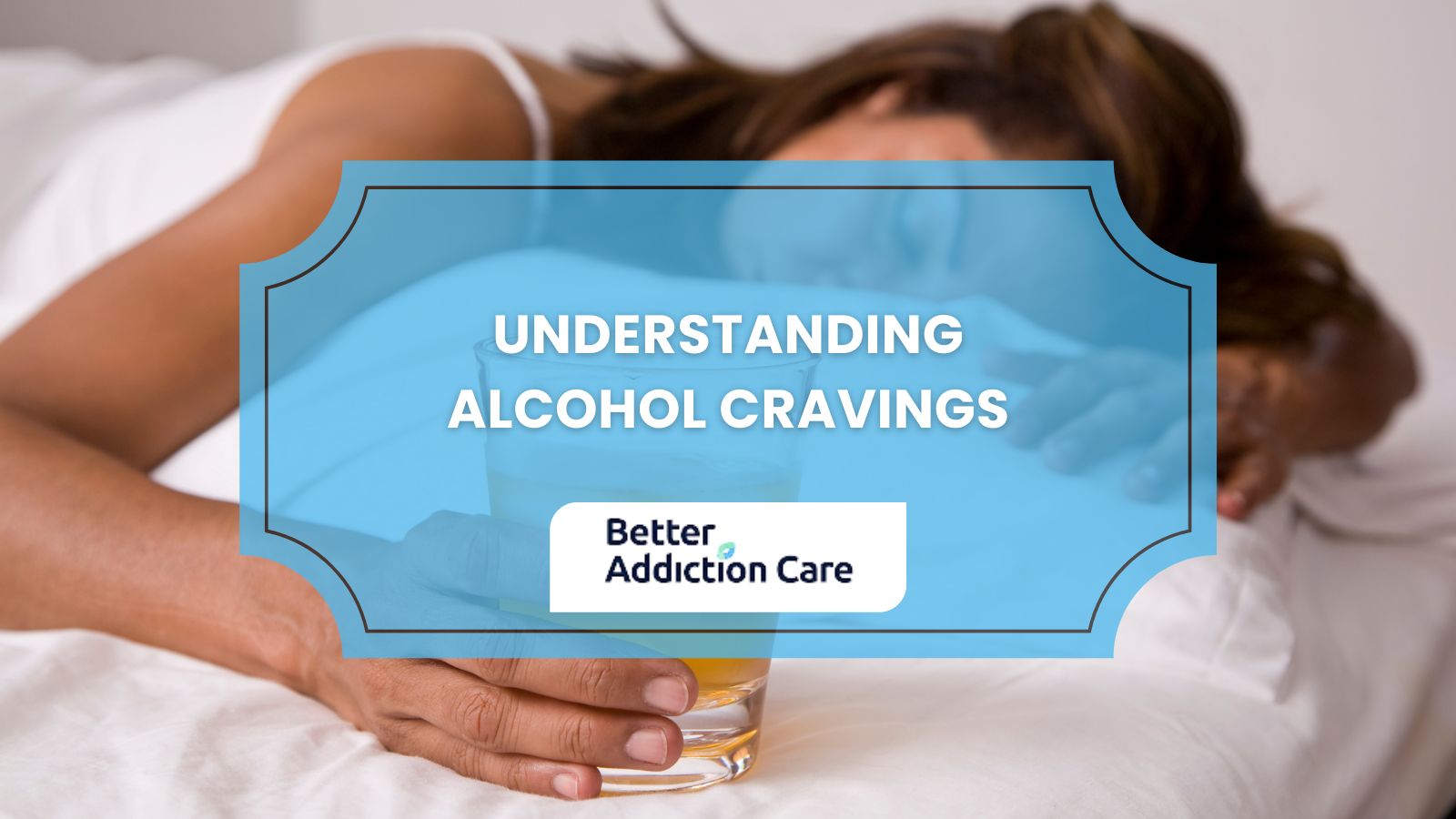How to Overcome (Quit) Alcohol Addiction, Effects of Alcohol Addiction and Support Groups
To overcome alcohol addiction, commit to change, seek professional help or support groups, and build healthier coping strategies and environments.

Whether for a close friend or a close family member, we have all known a person who is addicted to alcohol. Alcohol addiction, also known as alcoholism by the general public and as alcohol use disorder (AUD) by healthcare providers, is a huge public health issue that accounts for the lives of 178,000 people each year in the U.S. Alcohol addiction can cause several complications on your physical and mental health that can reduce your quality of life. Therefore, quitting alcohol becomes imperative to enhance your well-being and reduce the risk of complications. This article provides a comprehensive step-by-step guide to overcoming alcohol addiction.
What is Alcohol Addiction?
Alcohol addiction, alcoholism, or alcohol use disorder is a chronic condition that is defined as not being able to stop drinking or gain control over your alcohol consumption. It involves a certain degree of physical alcohol dependence. This is because repeated exposure to alcohol alters the brain´s chemistry, which leads to cravings, tolerance (needing more alcohol to achieve the same effect), and alcohol withdrawal symptoms when not drinking.
What are the Steps for Quitting Alcohol Addiction?
A structured plan for quitting alcohol includes setting SMART goals, identifying triggers, building support systems, creating healthy routines, and seeking professional help when needed to ensure long-term sobriety.
The 10 steps below details steps effective approaches with an increased success likelihood to overcome alcohol addiction.
- Step 1: Recognize the problem
- Step 2: Seek Profesional Help
- Step 3: Set Clear Goals
- Step 4: Know Your Why
- Step 5: Prepare for alcohol detox and manage withdrawal symptoms
- Step 6: Create a Support system
- Step 7: Change your environment
- Step 8: Develop a heathy coping mechanism
- Step 9: Track Your Progress and Make a Plan for Relapse Prevention
- Step 10: Keep Going
Step 1: Recognize the Problem
The first step towards alcohol addiction recovery is to recognize your relationship with alcohol. Many people with alcohol-related problems often struggle to admit they have unhealthy drinking patterns, such as binge drinking. Having one or more signs of alcoholism may warrant the need for self-reflection to understand how alcohol causes problems in your life. Moreover, identifying how much you drink and what your alcohol triggers are is also important. Once you acknowledge that you suffer from alcohol addiction, you can start planning how to quit and start your path to recovery.
Step 2: Seek Professional Help
After acknowledging the problem, getting professional help is perhaps the most important part of the process to quit drinking. Consulting a professional healthcare provider or addiction specialist before reducing or quitting alcohol is the best strategy, as abrupt stoppage can precipitate life-threatening alcohol withdrawal symptoms.
Apart from giving you a complete assessment of your alcohol addiction, alcohol addiction treatment professionals help to:
- Motivate change: addiction treatment professionals Provide additional motivation to change your drinking pattern depending on your readiness to change.
- Give Medical advice: Give you health recommendations that fit your current physical condition, including safe detox strategies.
- Refer you to Inpatient rehab: Refer you to inpatient rehab facilities if needed.
- Monitor your progress: Monitor your progress with regular follow-up consults.
- Provide Counseling & answers: Provide additional counseling and help with any alcohol-related doubts.
- Create Structured quit plan: Help you outline a structured plan to quit drinking while avoiding alcohol withdrawal.
- Therapy or medication: Offer medication or cognitive behavioral therapy (CBT) to help you quit alcohol
Step 3: Set Clear Goals
This means choosing specific, measurable goals like reducing alcohol intake gradually or starting a sober journey, so you can track progress and stay motivated.
Once you have had your medical evaluation and you and your physician have devised a plan, the next step is clearly defining your goals. Setting concrete goals can help you maintain your focus throughout your recovery journey. It is important to understand that while “never drinking again” is the ultimate objective. It may require a lot of baby steps to get there. Thus, it is important to set some smaller, achievable goals first that can help you boost your confidence and achieve your final aspiration.
Although goals can vary depending on the specific needs of each person, some common and effective ones are:
- Stop going to places or events where you feel tempted to drink.
- Avoid being surrounded by people who can trigger your drinking
- Start attending therapy once a week
- Attend a support group meeting at Alcoholics Anonymous (AA)
- Find a replacement beverage that can help you when cravings kick in.
- Use your hobbies to keep yourself busy
- Build healthy habits that help you replace the bad ones.
- Keep a daily track of your progress
Step 4: Know Your Why
You will face different obstacles throughout your journey to recovery. Having your “Why” or the reasons that made you cut back or quit alcohol is important to stay committed to your goal. Writing down your why and having it in plain sight can help you remember to stay on course.
Step 5: Prepare for alcohol detox and manage withdrawal symptoms
Depending on the severity of your addiction to alcohol, you can experience what is known as alcohol detox. Once you quit drinking, your body starts getting rid of alcohol, and alcohol withdrawal symptoms may appear. You should be aware of what alcohol detox and withdrawal may look like to prepare for it.
Listed beow are 7 most common symptoms of alcohol withdrawal.
- Nausea and vomiting
- Anxiety
- Tremors
- Headache
- Insomnia
- Mood changes
- Sweating
Be aware of these symptoms and plan strategies to help you cope with them. Please note that in some cases, medical supervision may be necessary to ensure a safe detox.
Listed below are 5 tips for managing withdrawal symptoms.
- Stay Hydrated
- Have a good nutrition
- Try to rest and relax
- Take medication if recommended by your physician
- Stay in touch with your support network
If severe withdrawal symptoms appear at any point in your alcohol detox, or you are concerned about how you are feeling, you should seek professional help and call 911 immediately.
Step 6: Create a Support System
Creating a reliable support network is a vital part of your journey to recover from alcohol addiction. A good support system can provide you with emotional and psychological assistance that can be invaluable when someone is fighting to overcome addiction. Furthermore, it can also offer motivation, accountability, and a sense of community. Together, these support networks create a comprehensive safety net that can significantly enhance the chances of successful recovery and a fulfilling, alcohol-free life.
Step 7: Change Your Environment
An important part of quitting dirking is to avoid any possible triggers that can precipitate your relapse. It may not be necessary to turn your life upside down to quit drinking, but specific minor changes to your environment can make a huge difference:
-
Remove alcohol from your house
-
Avoid going to places where alcoholic beverages are served (bars, clubs, etc.)
-
Find spaces where you can enjoy with friends and family without alcoholic drinks.
Step 8: Developing Healthy Coping Mechanisms
Healthy coping mechanisms that can help your mind deal with bad feelings, alcohol cravings, and mental health issues can be game changers when fighting an alcohol addiction and staying sober.
Listed below are 6 alcohol coping mechanisms.
- Exercise and physical activity
- Mindfulness exercises
- Meditation
- Reconnecting with nature through outdoor activities
- Journaling
- Finding new hobbies
Step 9: Track Your Progress and Make a Plan for Relapse Prevention
Monitoring your progress and keeping track of the milestones you achieve through your journey can boost your motivation to stay focused on the road to recovery. Keeping a journal of your drinking patterns and how much you have been able to cut down your alcohol consumption can help you understand your condition and individual needs.
If you keep a good record of your drinking and how you feel, you may notice that you may be on the verge of relapse. Small relapses are a common part of the process and are not a synonym for failure. However, if you have a good plan on how to deal with setbacks and use them as learning opportunities to stay sober, you can significantly decrease the risk and frequency of relapses.
Listed below are 8 effective plans for relapse prevention.
- Identify and avoid triggers.
- Reinforce healthy coping mechanisms
- Maintain closer contact with a support network
- Establish healthy routines
- Keep track of your recovery
- Prepare for high-risk situations
- Learn from setbacks
- Get professional help if necessary
Step 10: Keep Going
Quitting alcohol addiction is not a sprint but a marathon, as the difficult part is not to reach sobriety but to maintain it. Therefore, staying committed to your goals is essential. Sometimes, it might be challenging to understand that recovery is a long-term process and progress may be gradual. Be patient with yourself!
What are the Effects of Alcohol addiction?
The main effects of alcohol addiction includes alcohol addiction lead to serious physical, mental, and social consequences, including liver damage, cognitive decline, emotional instability, and strained relationships.
Below are the complications of alcohol addiction.
Physical health problems
- Liver diseases
- Cardiovascular diseases
- Digestive system disorders
- Neurological problems
- Increased risk of different types of cancer
- Alcohol withdrawal symptoms
Mental health disorders
- Depression
- Anxiety
- Sleep disorders
- Increased risk of suicide
Social and behavioral issues
- Family issues
- Domestic violence
- Legal problems
- Financial strains
What are some Support and Assistance to help Alcohol addiction?
Alcohol addiction patients need support and rehab assistance when trying to quit alcohol addiction.
Below is a list of available resources, such as support groups, websites, helplines, and online communities, that can help you support people struggling with alcohol addiction.
- Alcoholics Anonymous (AA)
- SMART Recovery
- Moderation Management (MM)
- Women for Sobriety (WFS)
- National Institute on Alcohol Abuse and Alcoholism (NIAAA)
- National Helpline (SAMHSA)
- Rethinking Drinking (National Institute of Health)
- r/stopdrinking (Reddit Community)
If you need help, the Better Addiction Care helpline at (800) 429-7690 is available 24/7. In case of emergencies, please call 911 immediately.
Related Articles
Treatment Centers in New Jersey









